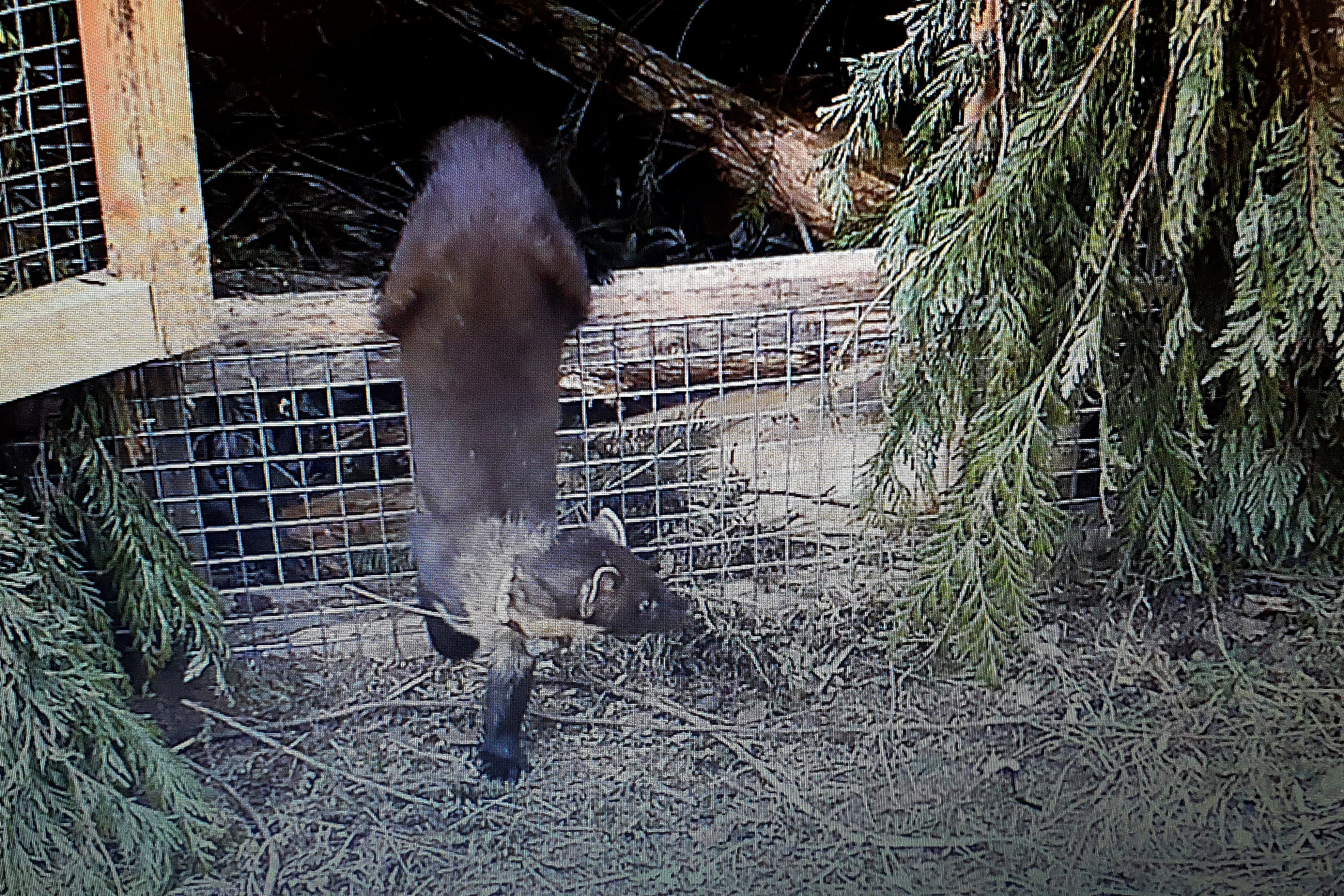Pine martens are returned to southern England for the first time in a century
Conservationists have released 15 pine martens into the wild in southern England in an effort to reestablish the cat-sized mammals in the region for the first time in more than a century

Conservationists have released 15 pine martens into the wild in southern England in an effort to reestablish the cat-sized mammals in the region for the first time in more than a century.
The animals, which are tree-climbing members of the weasel family, became extinct in South West England more than a century ago as a result of loss of their woodland habitat, hunting and trapping to meet demand for their pelts.
The Devon Wildlife Trust said Tuesday that eight adult females and seven males, sourced from wild populations in Scotland, were transported to secluded woodland locations in Dartmoor in September. They were placed in individual pens and fed by local volunteers during three days of acclimatization before they ventured out into their new homes.
Each pine marten was fitted with a radio collar to track its movements over the next few months. More will be released next year, and conservationists hope their population will grow gradually in the region.
Experts say the animals are native predators that can help restore woodland ecosystems that humans have disrupted.
Ed Parr Ferris, conservation manager at Devon Wildlife Trust, said the mammals are “amazingly well adapted for life in the woodland night, with strong claws, lithe bodies, fantastic hearing and even reversible rear ankles helping them to run down trees.”
“These rare mammals need our help to return to their former homes in the South West, but we also need their help to bring back the natural balance of wildlife to our woodlands," he said.